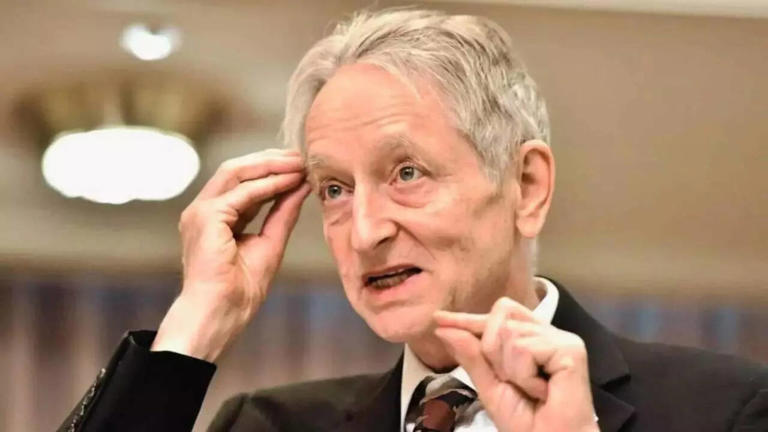The article discusses Geoffrey Hinton's views on how artificial intelligence (AI) advancements may lead to significant job losses across many industries. It emphasizes that certain job categories will be most affected, based on Hinton's warnings. The piece likely covers AI’s disruptive role, especially in repetitive and predictable tasks, and may address which sectors or types of jobs.
Geoffrey Hinton: Warnings and Hopes for AI's Impact
Table of contents [Show]
AI to Cause Massive Unemployment and Compound Inequality
Geoffrey Hinton, Nobel Prize winner and dubbed the “godfather of AI,” cautions that artificial intelligence will lead to massive unemployment, a surge in profits, and deepening inequality between the rich and poor. According to Hinton, AI will be leveraged by wealthy individuals and corporations to maximize profits and eliminate jobs:
“What’s actually going to happen is rich people are going to use AI to replace workers. It’s going to create massive unemployment and a huge rise in profits. It will make a few people much richer and most people poorer. That’s not AI’s fault, that is the capitalist system.”
Which Industries Face Greatest Risk?
During a Financial Times interview, Hinton explained that industries centered around routine tasks are most vulnerable to automation, while highly skilled positions and the healthcare sector may see gains. He noted:
“If you could make doctors five times as efficient, we could all have five times as much health care for the same price.”
Universal Basic Income Debate
Hinton openly disagrees with Sam Altman, CEO of OpenAI, regarding the idea of universal basic income (UBI). He argues that UBI cannot address human dignity or replace the sense of value derived from work.

How Companies Are Responding to AI
Recent data from the New York Fed suggests that firms using AI are more likely to retrain workers rather than fire them, although an increase in layoffs is still anticipated.
Existential Risks and Regulation
Hinton reiterates that AI carries significant risks, estimating a 10-20% chance that superintelligent AI could threaten humanity’s existence. He also highlights the potential misuse of AI for creating bioweapons, praising China’s regulatory initiatives and criticizing the former U.S. administration’s reluctance to tighten controls.
Unpredictable AI Outcomes
Hinton urges humility and caution when predicting AI’s future:
“We don’t know what is going to happen, we have no idea, and people who tell you what is going to happen are just being silly. We are at a point in history where something amazing is happening, and it may be amazingly good, and it may be amazingly bad.”
Why Hinton Left Google
Contrary to reports, Hinton’s departure from Google in 2023 was personal, not a move to better discuss AI risks:
“I left because I was 75, I could no longer program as well as I used to, and there’s a lot of stuff on Netflix I haven’t had a chance to watch.”
AI’s Role in Hinton’s Personal Life
He shared a humorous anecdote about OpenAI’s ChatGPT, revealing that a former girlfriend used the chatbot to facilitate their breakup:
“I didn’t think I had been a rat, so it didn’t make me feel too bad,” Hinton joked.
Tags: AI, Artificial Intelligence, Geoffrey Hinton, Technology, Unemployment, Economic Impact, Automation, Universal Basic Income, Regulation, ChatGPT




